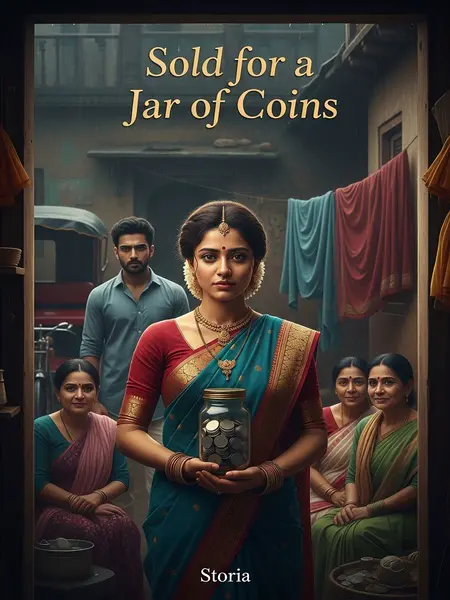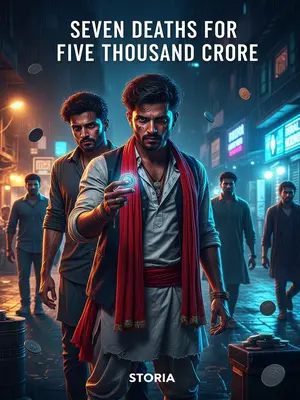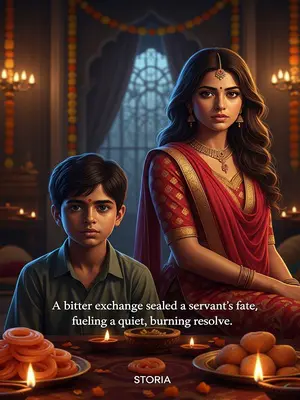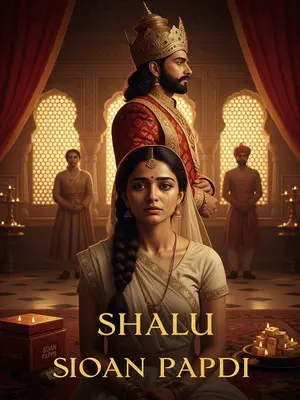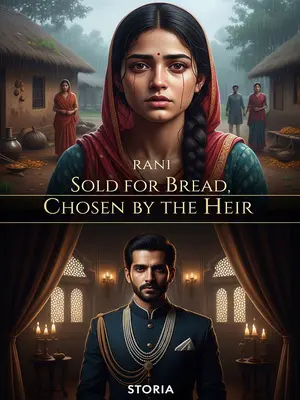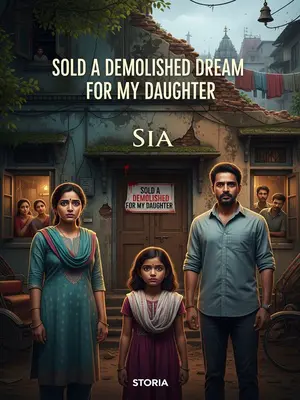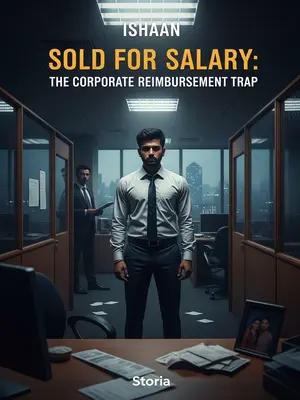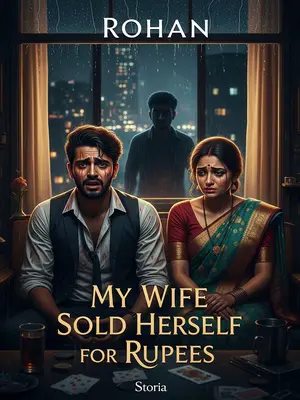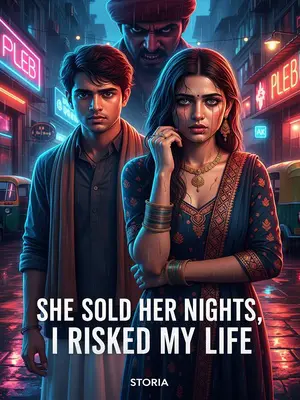Chapter 3: Lucknowi Schemes and Rival Hearts
Chandan followed Rohan Sharma around Lucknow, the luggage on his shoulder growing heavier and heavier, regretting not having Chintu come instead:
The heat pressed down on them as rickshaws rattled past and hawkers shouted over the blare of auto horns. The hawker’s bell clanged, and someone shouted for "fresh paan, ekdum Lucknowi!" as Chandan trailed behind. Chandan’s kurta stuck to his back, and he glared at the bundles of cloth in his arms, wishing he could dump them at the next corner.
"The chikankari dupattas here are nice. Buy thirty-six for the college teachers and classmates."
Rohan’s voice was brisk, eyes scanning the stalls with practiced ease. The lanes of Aminabad bustled around them, women haggling for saris, shopkeepers dangling garlands of jasmine.
Chandan did some quick math and thought it wasn’t right:
He counted on his fingers. Arrey, bhaiya ki planning toh Oxford ki degree se bhi tez hai, but my back is breaking! Even the paanwala eyed him with sympathy.
"There are thirty-seven teachers and classmates in the college. Why buy thirty-six?"
Rohan tapped Chandan on the head with his rolled-up dupatta:
The gesture was playful, but his tone brooked no argument. A shopkeeper nearby laughed, shaking his head at the banter.
"Fool, do you want to give one to that Sahu fellow too?"
Chandan followed sulkily, finding his bhaiya’s thoughts hard to understand. Clearly, the two used to be on good terms.
He remembered the old days, when Rohan and Sahu would cycle to college together, their laughter echoing across the cricket ground. Now, things were different.
When they first entered college, the professor praised bhaiya’s extraordinary talent, able to read the family’s library at a glance, never forgetting what he read. No one in the college could beat him.
The professors would boast of Rohan’s memory, calling him "Sharma ji ka Einstein" in front of the class. The other boys watched with a mixture of envy and admiration.
Of course, at first, Sahu couldn’t beat him either.
Rohan would lounge in the canteen, drinking cold coffee, feeling invincible. Sahu, always at his books, was just a background figure then.
Bhaiya would lie on a friend’s lap at the canteen, sipping cold coffee and feeling pleased:
He loved an audience, spinning tales of his own brilliance as the fan above clattered and a stray dog dozed under the table.
"Sahu is good-looking and not stupid, but it’s a pity he met me. Sigh, a poor boy who only knows to study hard has no future."
But later, that hard-studying Sahu topped him.
When the results came, Sahu’s name shone at the top of the list, and the canteen buzzed with gossip. Rohan’s smile faltered, his grip on the cold coffee tight.
Bhaiya’s smile couldn’t hold up anymore.
Even the teachers noticed, offering extra classes and hollow encouragements. Rohan started spending more time at Lala’s shop than in the library.
But bhaiya had always been clever and full of tricks.
Chandan remembered the stories, whispered by servants and classmates, of Rohan’s sly ways to stay ahead.
When Neha arrived, bhaiya quickly came up with an idea.
He saw opportunity where others saw only inconvenience. Neha’s presence became another piece on his chessboard.
He had Neha make barfi and samosas, saying they were for the college as a late-night snack.
Neha, eager to please, threw herself into the work, her bangles clinking as she stirred sugar and besan late into the night.
Neha thought Rohan valued her.
For a brief moment, she believed her hard work meant something. Her smile was shy, her hopes fragile.
She was happy, didn’t ask the servants for help, cheerfully washed a kilo of cashews and five kilos of besan, watched the stove for two nights, packed them neatly in steel tiffins, and delivered them herself under the scorching sun.
Her dupatta dark with sweat, she trudged up the college steps, the tiffins rattling with each step. The sun beat down mercilessly, but her heart was light.
Of course, bhaiya didn’t care for these sweets; he just wanted to use them to tease Sahu.
Rohan watched from the shade, eyes glittering with mischief, as if it were all a game.
As soon as Neha brought them, bhaiya threw them away in front of her.
Rohan tossed the tiffins into the dustbin, and the silver foil from the barfi stuck to his fingers. He wiped it on the tablecloth without a glance. The sound of tiffins clanging against the dustbin echoed in the corridor. Neha’s face fell, her hopes crushed like the barfi under Rohan’s heel.
He thought Sahu was poor and would pick them up to eat.
Rohan’s logic was twisted, but in his world, humiliation was a sport.
But before Sahu came, Neha was already so angry she was about to cry.
Her eyes brimmed with tears, but she held her chin high. The other students watched, murmuring to each other.
It was Sahu who couldn’t stand it, picked up the samosas, dusted off the newspaper, and took a bite:
He tore the samosa in half, offered one piece back to Neha, saying, "Akele kaise khayenge, didi?" He said nothing at first, just chewed slowly, then nodded in approval. The gesture was small, but in that moment, it meant everything.
"Very tasty."
Neha broke into a smile through her tears, a little embarrassed:
Her laughter was shaky, but real. "I picked those cashews one by one and removed all the bad ones."
Seeing the two of them looking like a perfect pair, Rohan’s jaw clenched as he watched Sahu and Neha laugh together, his chai suddenly tasting bitter.
Out of respect for the professor’s lecture on friendship, he still invited Sahu to board a boat and listen to ghazals.
The evening on the Gomti river, with lanterns glowing and the sound of a distant harmonium, was meant to show off his own taste.
Sahu glanced at the graceful singer and just stepped back and folded his hands lightly:
His humility, quiet but strong, made even the boatman pause in respect.
"Sahu is already engaged."
He even had the singer sigh softly: 'It’s easy to find gold, hard to find a lover with true feelings.'
The ghazal, heavy with longing, seemed to mock Rohan’s plans. The air was thick with unspoken words.
Thinking of this, Rohan gritted his teeth and sneered:
He spat the words, each one laced with bitterness. His pride, once unshakable, was now fraying at the edges.
"Jo Sahu ke ghar gayi, samjho zindagi bhar roti sekhti rahegi. Whoever marries that blockhead Sahu will have a hard life. He’s never even held a girl’s hand. How would he know how to cherish a woman?"
Thinking of Sahu’s unromantic ways—and thinking of all the things his own bhaiya had bought to marry Neha. The sharbat had to be at least twenty years old, the wedding lehenga Lucknowi embroidery, the wedding car decorated by ten workers. Even marrying a film heroine wouldn’t be so grand.
Rohan’s preparations, the talk of the colony, had everyone’s tongues wagging. Even the colony aunty whispered, "Wah, Sharma family!" behind their hands.
Chandan quickly flattered him:
Chandan, always quick to please, joined in with his own brand of foolishness.
"Whoever marries into the Sahu family is practically a widow. Bhaiya is the one who knows love, or why else would Neha work so hard to save up to marry you? By the time the Sahu family has money to marry, your child with Neha will be old enough to buy paan on the street."
Pleased by Chandan’s words, Rohan closed his dupatta but pretended to be troubled:
He tried to look pensive, but a hint of a smile tugged at his lips. Around them, the shops glowed under strings of fairy lights, the air thick with the smell of roasting bhutta.
"I didn’t really want to marry, but seeing her so sincere, I’ll reluctantly do it. Once she’s in the house, I’ll wear down her temper, and she’ll be completely devoted."
His words, meant to sound casual, betrayed a secret hope. Even Chandan could sense it.
Chandan was curious and asked:
He adjusted the bundles on his shoulder, lowering his voice. "Then why did bhaiya have me take Neha’s money ten days ago? Aren’t you afraid she won’t marry?"
Rohan smiled faintly:
A slow, calculated smile spread across his face. "Her Mausi wouldn’t keep her as another mouth to feed. She has nowhere to go. If she doesn’t marry me, who else can she marry?"
Chandan thought about it and felt his bhaiya was indeed clever.
He nodded, impressed by the logic, though something uneasy twisted in his gut.
The manager of the jeweller’s shop next door saw Rohan spending freely and came over to promote:
The jeweller, spotting opportunity, rushed out, his moustache twitching with excitement. "Bhaiya, take a look at our shop. Get a set of five gold bangles for your wife—the workmanship is worth it."
As the jeweller clanged away, he saw hanging on the teak rack…
A flash of red caught his eye: a bridal dupatta, Lucknowi embroidery glittering in the shop’s golden light. The jeweller called out, "Shaadi ke liye best piece, bhaiya! Aapke dulhan ke liye hi bana hai!" For a moment, the world seemed to hold its breath, waiting for someone to claim it.
